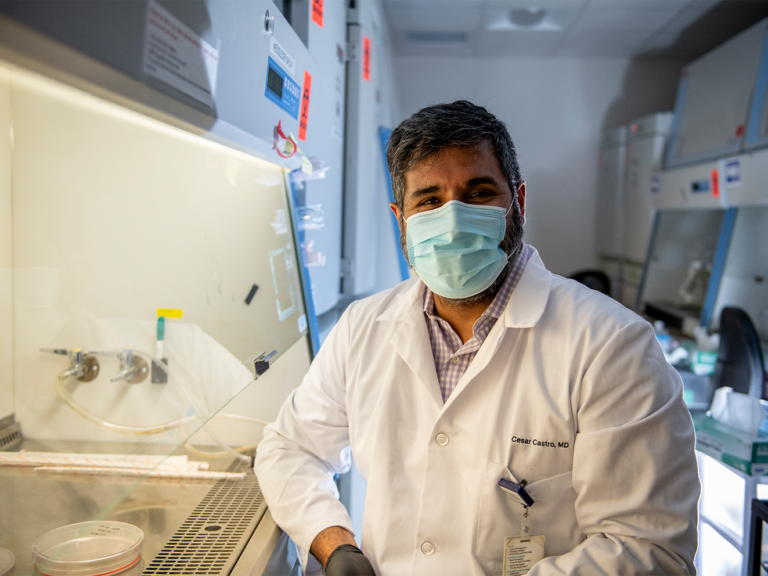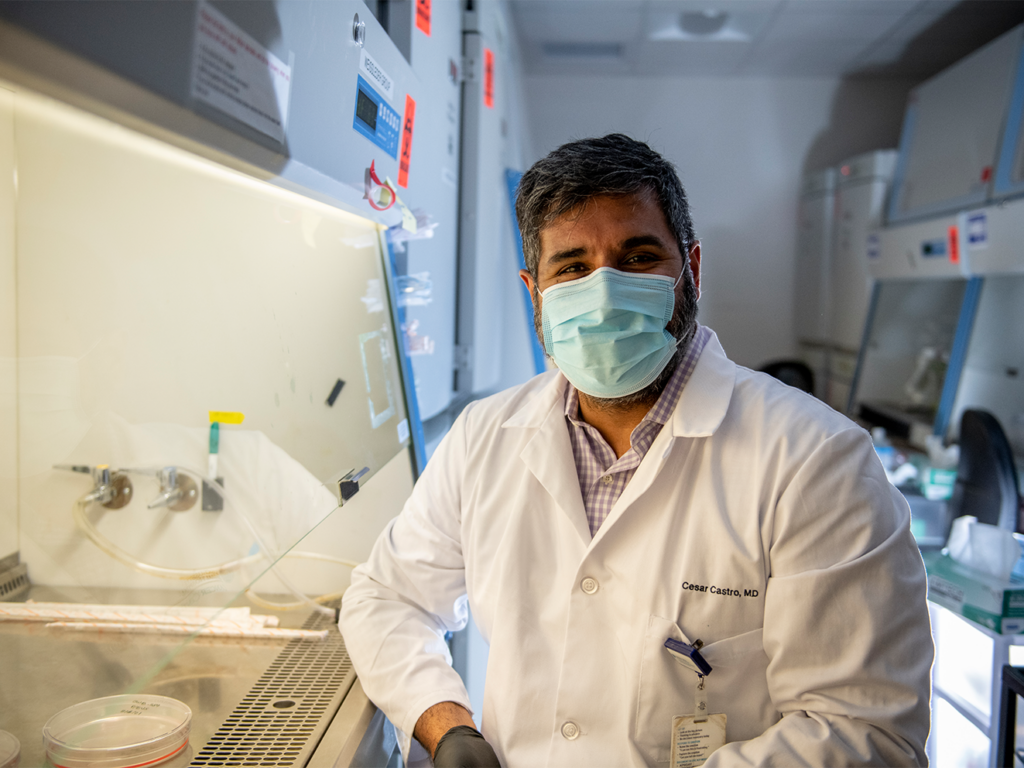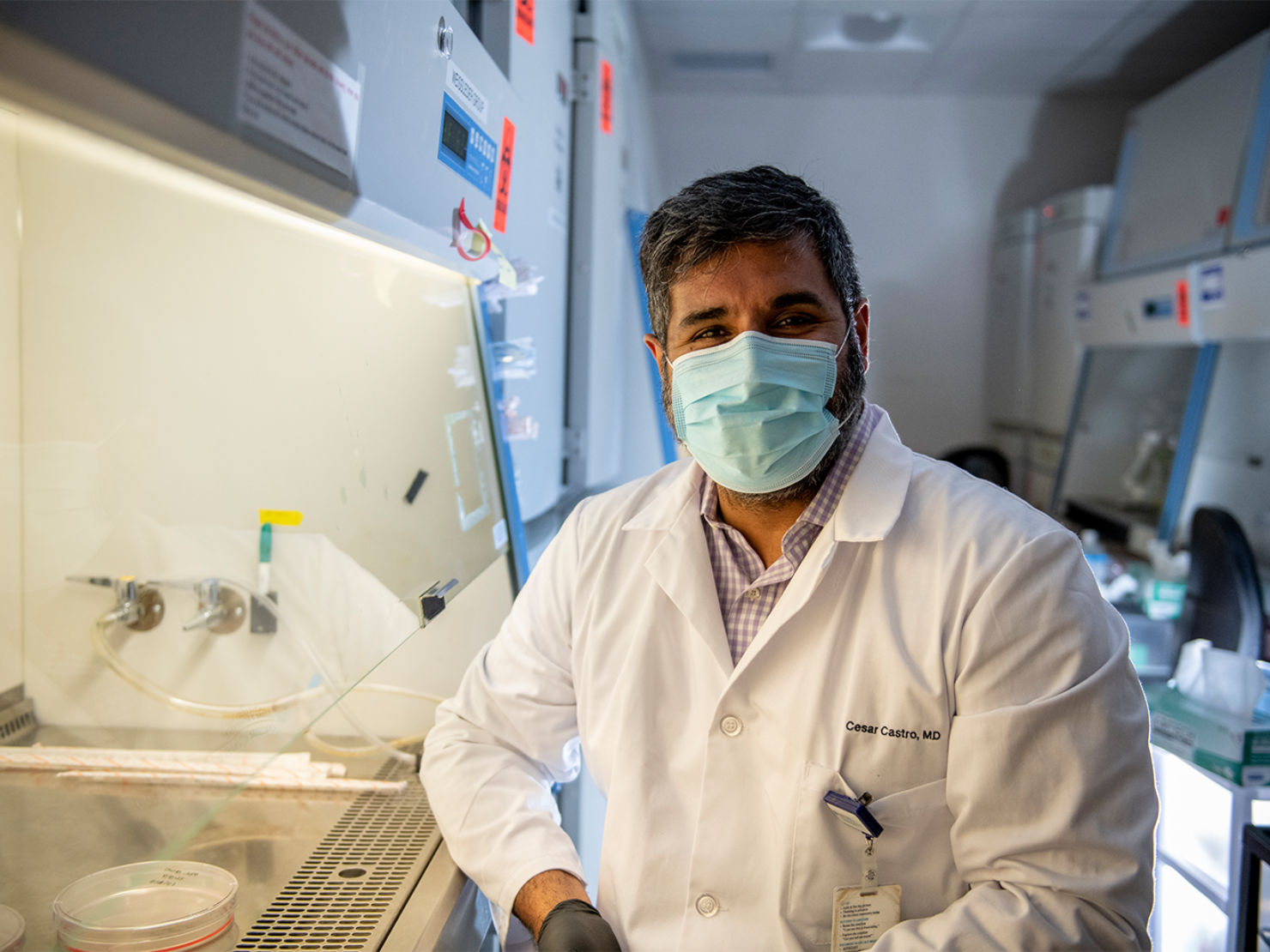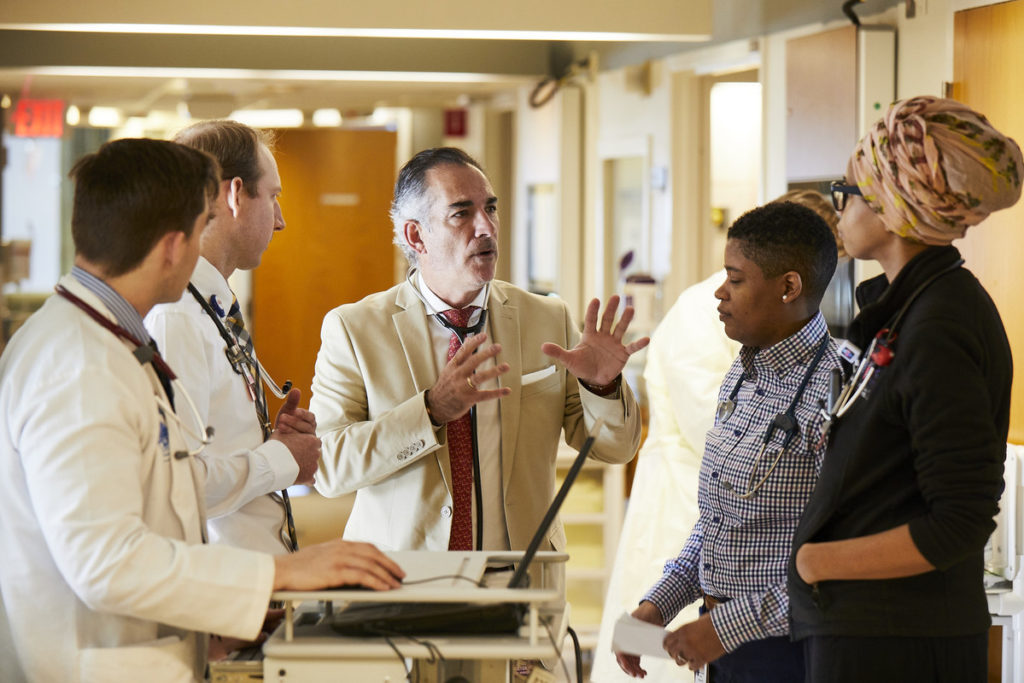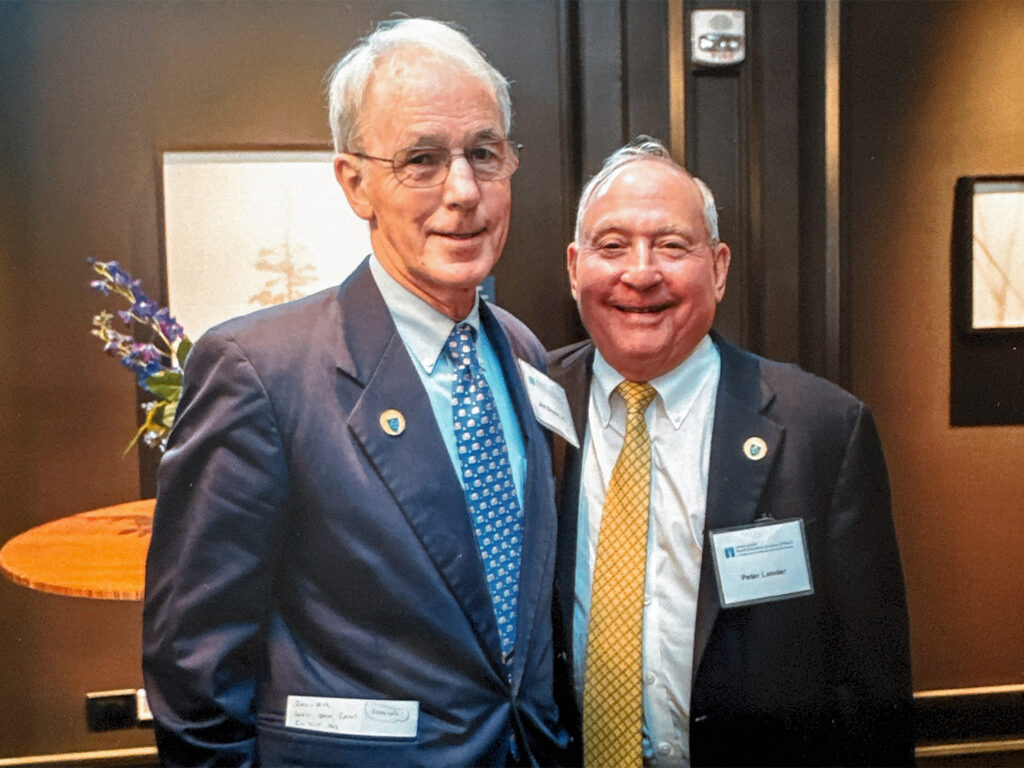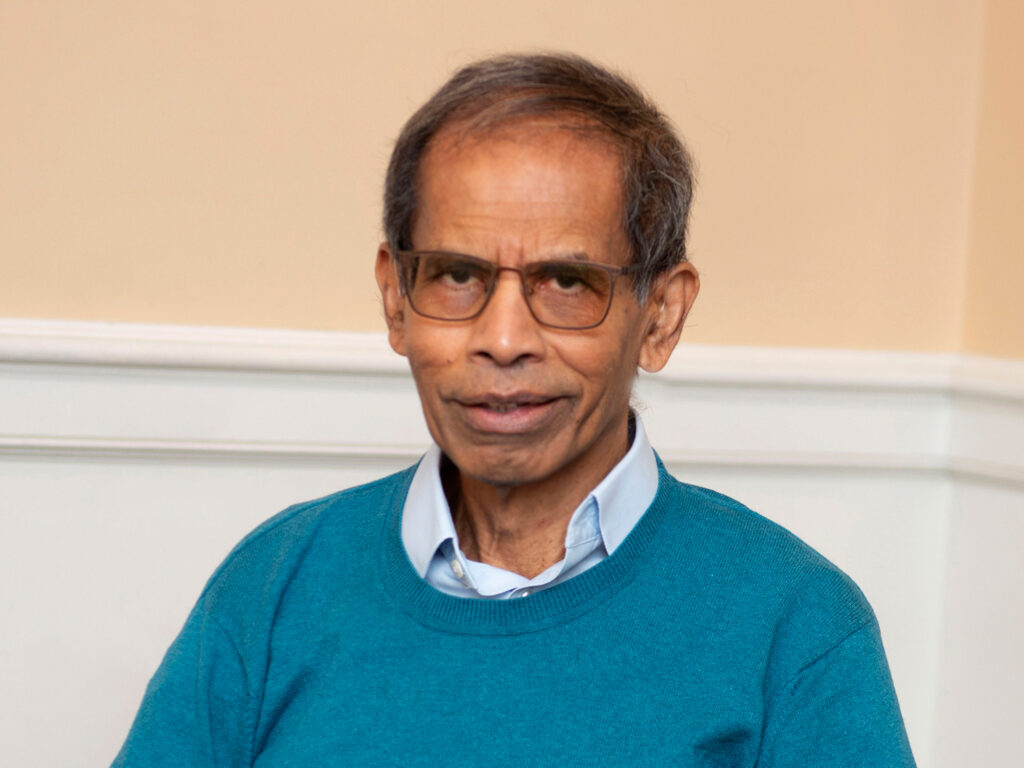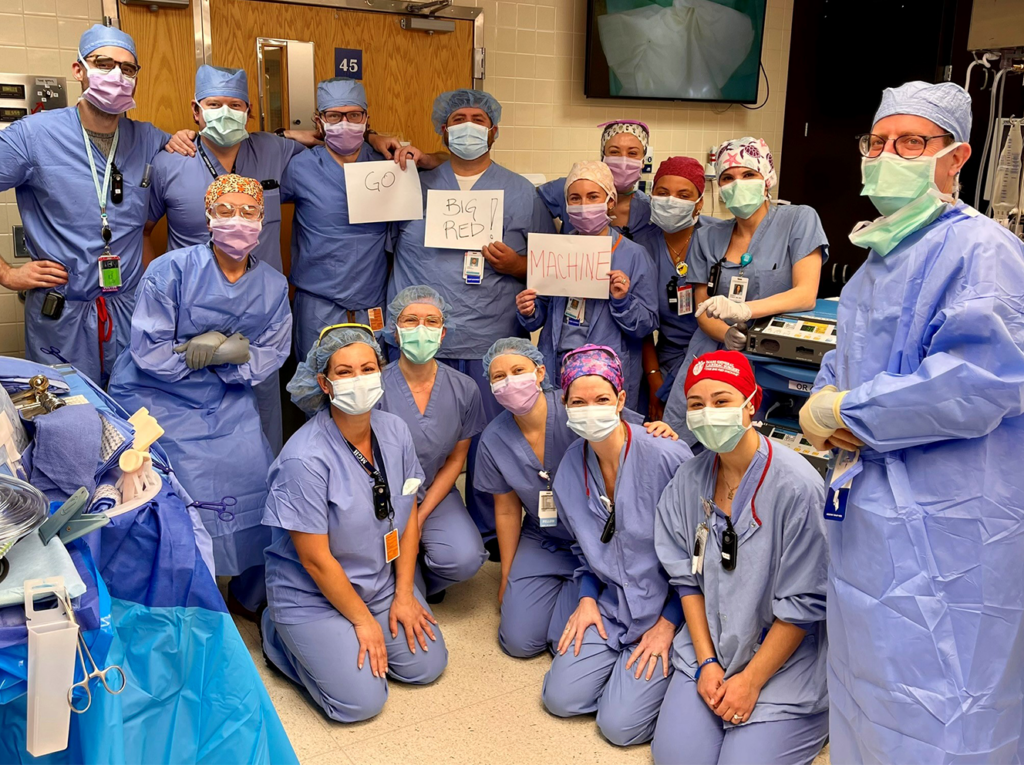Cesar Castro, MD, MMSc, director of the Gynecologic Oncology Program at Massachusetts General Hopsital, credits support from the hospital’s Center for Diversity and Inclusion (CDI) for shaping his career as a researcher and leader. For Dr. Castro — who immigrated to Queens, New York, from Lima, Peru, as child — entering the medical field meant navigating a system so complex that it often prevents people from backgrounds underrepresented in medicine from starting or succeeding in their careers.
Institutional Support
As a medical student, Castro was selected for the CDI’s highly competitive Summer Research Training Program (SRTP), which encourages students who are underrepresented in medicine (UiM) to consider careers in academic medicine and biomedical research by immersing them in cutting-edge research opportunities. His experience in the SRTP helped to demystify the daunting academic-medical ecosystem in Boston. He would go on to complete his fellowship at Mass General in adult oncology.
Later, as a junior faculty member, he was awarded a Mass General Physician-Scientist Development Award (PSDA), allowing him to pursue an interest in studying nanotechnology use for cancer detection. These competitive awards for UiM faculty provide funding that protects research time, increasing opportunities to advance to senior positions in academic medicine and leadership. He is now working to translate his innovations in nanotechnology into point-of-care diagnostic solutions for resource-constrained regions globally.
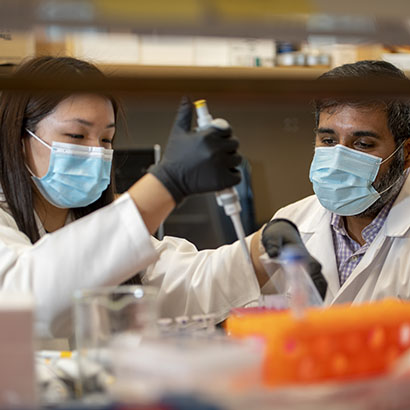
“The institutional support I received from the CDI gave me access to a network of colleagues and mentors,” says Dr. Castro. “They helped me to progress through the early stages of my career and made it clear that I would have a home at Mass General.”
Today, Dr. Castro serves as faculty co-director for research at the CDI, mentoring up-and-coming physicians and researchers, informed by his own experience more than a decade ago.
“I wouldn’t be at Mass General without the SRTP, which showed me the plethora of resources and support available to researchers here, and I wouldn’t have made the strides I’ve made in non-invasive cancer detection without the funding provided by the PSDA,” Dr. Castro says. “Now, I get to pay it forward to other young researchers from backgrounds like mine.”
To support the Center for Diversity and Inclusion, click here.

